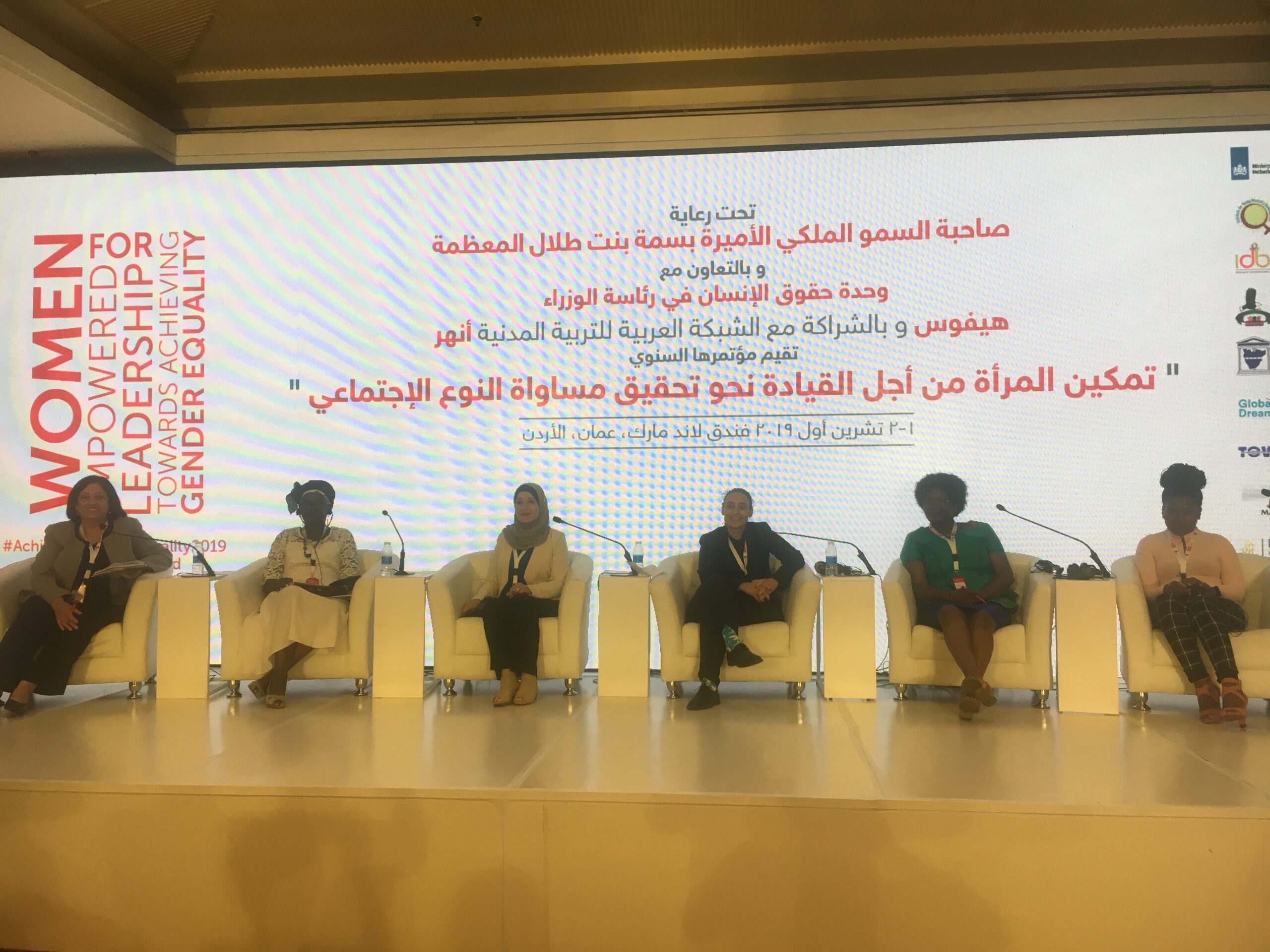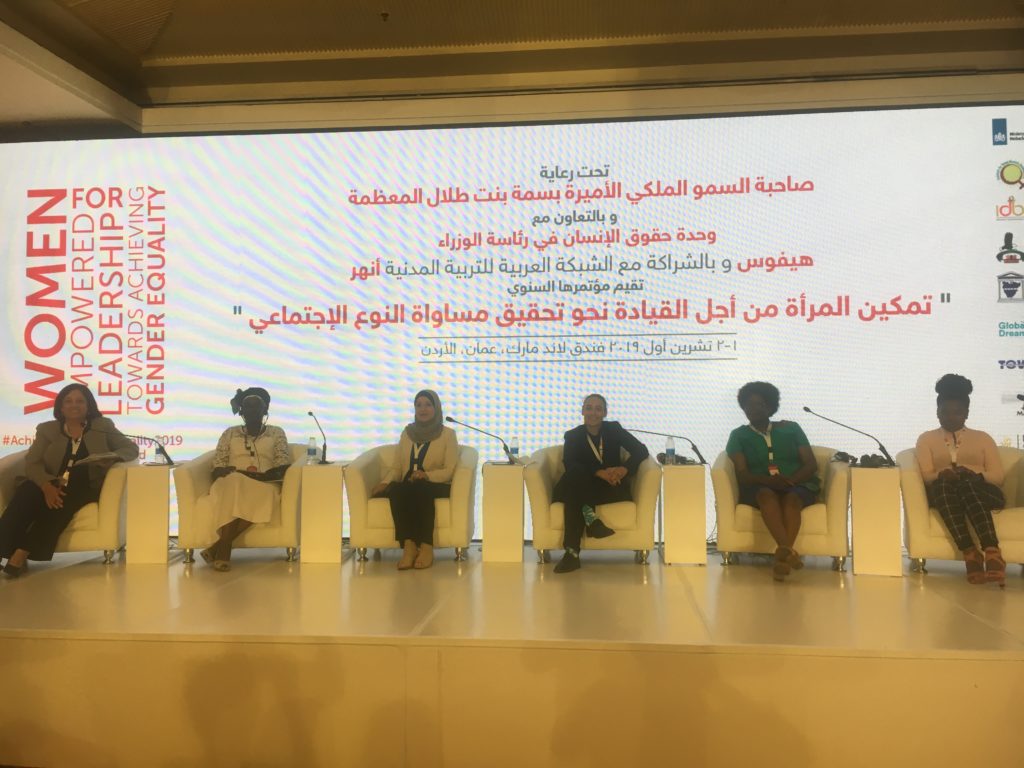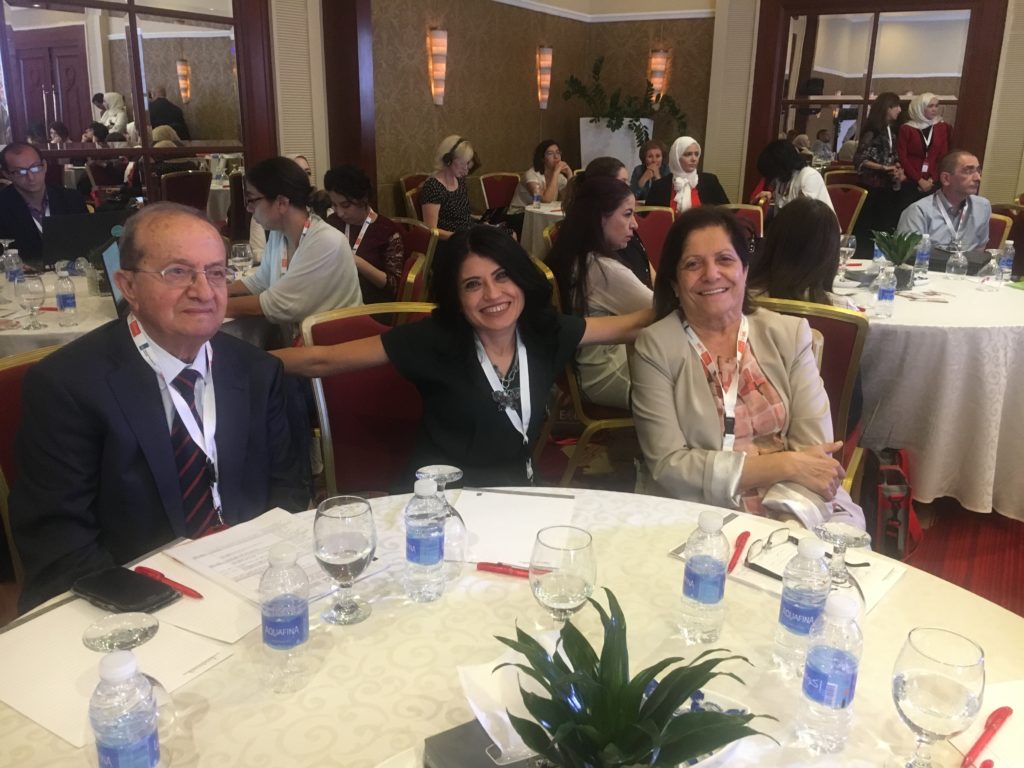id=”698″ id=”post-2110″ class=”wp-post-content-block ” itemscope itemtype=”http://schema.org/BlogPosting” itemprop=”blogPost”>
Linking and Learning 2019: Sharing Experiences from the Field
By Shara Jazzar
The Linking and Learning Conference was an opportunity to share experiences from the grassroots level from beneficiaries of the WE4L program from Lebanon, Jordan, Malawi, Zambia and Zimbabwe. Such input enables to see the impact the program has and what change it has induced on the local level.
Nariman Al-Shawaheen, member of Stand Up with the Teacher Campaign, Jordan
In 2015, the Stand Up with the Teacher Campaign was launched by female teachers working at Jordanian private schools, with the support of Ahel and Hivos.
As Nariman described it, “it all started when she and 15 other teachers attended a workshop hosted by Ahel and shared their stories of injustice related to salaries that are below the minimum wage, the lack of leave days, and other issues.” Consequently, Ahel asked the teachers whether they would be interested to join a campaign and claim their rights. 7 teachers agreed, and Nariman was eventually fired from her school for attending the periodic meetings of the Campaign. However, this did not stop Nariman from continuing her activism. Today, the Campaign’s database includes 3,000 teachers, of which 70 activists in seven governorates. Furthermore, 13,700 persons follow the Campaign’s page on Facebook, which acts as a hotline for receiving the complaints of teachers in order to find solutions for them. Nonetheless, the biggest challenge that stands in the way of teachers claiming their rights is fear. Through legal workshops and trainings, as well as popular education sessions, the Campaign works towards empowering female teachers in order for them to become capable of protecting and claiming their rights without fear.
Engwase Mwale, Executive Director of NGOCC, Zambia
As the Executive Director of the Non-Governmental Organizations Coordinating Council (NGOCC), Engwase works with people with diverse backgrounds, which is challenging.
Engwase highlighted “three principles when it comes to empowering women to reach leadership positions; these are determination, focus and hard work.” Furthermore, education is crucial as well as seizing whatever leadership opportunity presents itself as it may open new perspectives. Finally, women need to be aware of their capabilities, in addition to their strengths and weaknesses.
Lydiah Hlabati, Assistant District Administrator for Bindura District, Zimbabwe
What makes the story of Lydiah interesting is the fact that she represents women who were married and got pregnant at a very young age. After being separated from her husband, she got back to him only to leave him again. The second time, despite having two children and being only 21, she refused to be back with him. From that day, she decided to take her life in charge, even though she lives in a patriarchal society that strongly opposes divorce. After working as a research assistant, she attended university. Today, Lydiah has achieved something in terms of leadership as she has become the Assistant District Administrator for her area, working with women in different fields such as mining and farming.
Laury Haytayan, Candidate in previous Lebanese parliamentary elections, Lebanon
Laury has made herself known in two sectors that are generally considered as male territory; gas and oil as well as politics. She believes that what made her who she is today is the fact that “she knew what she wanted and followed her ambitions.” In her opinion, women and girls are often accused of being selfish when they decide to follow their dreams and this is unfair to them. Furthermore, Laury wants females to know that they are independent entities who do not need to be limited by the roles of wives or mothers.
When she ran for parliamentary elections in Lebanon, Laury was mostly interviewed by foreign media whereas the local media tried to keep her and other members of the civil society away from the spotlights. For her, if a woman is elected, she should not limit herself to positions related to ‘women’s affairs’ because females are capable of excelling in any domain they want, just like men.
Cecilia Chivunga Tovwirane, Project Officer for WE4L with Tovwirane, Malawi
During her career, Cecilia was the executive director of an organization in her country. However, while in her position, “males she was meeting would offer to have sex with her.” Consequently, she quit and took up the position of WE4L project officer. At first, men looked down at her only to later become impressed after seeing her achievements. Cecilia believes that WE4L program has given capacities to women in Malawi and prepared them for holding leadership positions in their society. However, they often face challenges that can be defined by gender roles and social norms.






